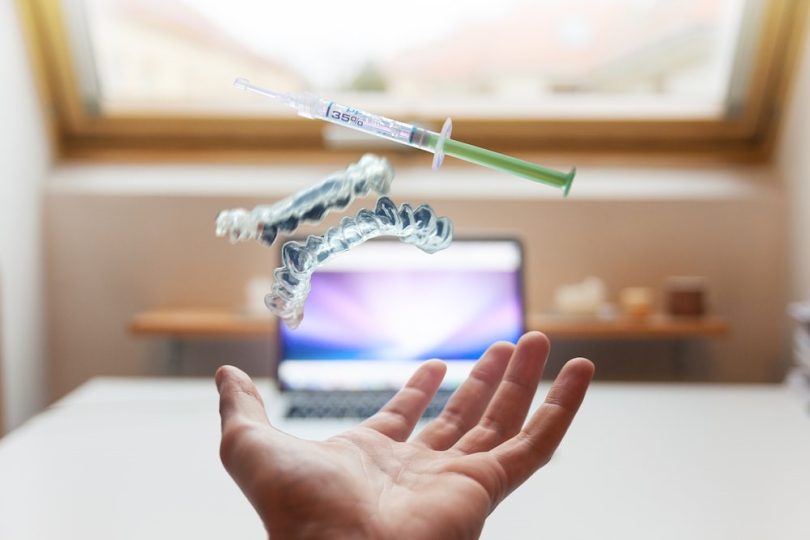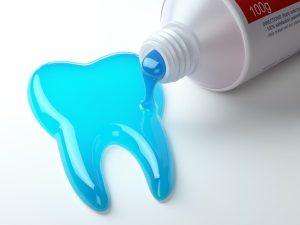As anyone who has ever had a cavity can attest, dental health is essential to overall wellbeing. However, there is a lot of misinformation out there about how to achieve and maintain good oral health.
The bottom line is that it is important to be discerning when it comes to information about dental health. Myths and misinformation can lead to poor oral hygiene and a host of other problems. With that in mind, be sure to consult with a dentist or other medical professional before making any changes to your dental care routine.
To equip you with the proper knowledge you need to ensure a happy and healthy smile, let’s debunk some typical dental myths which often float around the internet or social circles from time to time!
Table of Contents
“Brushing Harder Brings Quicker Resultsâ€
When it comes to brushing your teeth, it is important to use gentle, circular motions rather than scrubbing back and forth. While it may seem like scrubbing harder will remove more plaque and bacteria, this is actually not the case.
In fact, brushing too hard can actually damage your tooth enamel and lead to gum recession. Not only will this make your teeth more susceptible to cavities and decay, but it can also cause your gums to bleed or become inflamed. So next time you reach for your toothbrush, remember to be gentle! Your teeth will thank you for it in the long run.
“It Doesn’t Matter When You Brush Your Teethâ€
For years, people have been told that it doesn’t matter what time of day they brush their teeth, as long as they brush twice a day. However, recent research has shown that this may not be the best advice!
In fact, brushing at night is a crucial window of opportunity to promote a good oral health, because it helps to remove plaque and bacteria that have built up over the course of the day. Additionally, nighttime brushing can help to prevent cavities and tooth decay, as bacteria in the mouth is most active while our bodies rest. So, if you’re looking to keep your smile healthy and sparkling, make sure to brush your teeth before bed (and once more in the morning too!)
The Conspiracy of Fluoride
For years, there have been claims that fluoride is bad for our health. However, these claims are largely based on unfounded conspiracy theories and misunderstandings about the science. In reality, fluoride is a safe and effective way to prevent tooth decay!
It works by Strengthening the tooth enamel and making it more resistant to cavities. Fluoride is also found naturally in many water sources, and it has been added to public water supplies for over 70 years. There is no evidence that fluoride is harmful at the levels typically found in drinking water.
In fact, the CDC has recognized community water fluoridation as one of the 10 greatest public health achievements of the 20th century. So next time you hear someone claim that fluoride is dangerous, be sure to set the record straight.
Pregnancy and the Dental Office
It’s a common myth that pregnant women should avoid going to the dentist. However, there is no evidence to support this claim. In fact, pregnant women are more likely to experience dental problems due to the hormonal changes that occur during pregnancy.
As a result, it’s important for women to continue to visit the dentist during pregnancy in order to maintain good oral health. Additionally, dental x-rays are safe for both mother and child, so there is no need to avoid them during pregnancy. With proper care, women can keep their teeth healthy throughout pregnancy and beyond.
“They’re Just Baby Teethâ€
When it comes to dental care, many parents assume that baby teeth are temporary and not worth the time or expense of regular dental check-ups. However, this is not the case. Baby teeth are essential for proper development of the adult teeth and good oral hygiene habits should be established from an early age.
Regular dental check-ups can help to identify any problems with the teeth and mouth, and early intervention can avoid serious problems later on. In addition, teaching children good oral hygiene habits at an early age will help them to maintain healthy teeth and gums for a lifetime. Therefore, parents should not neglect their child’s dental care just because they have baby teeth.
“Gums Are Prone to Bleedingâ€
Many people believe that bleeding gums are a normal and harmless condition, but this is not the case. While it is true that some gum bleeding can be caused by factors like brushing too hard or eating certain foods, it can also be a sign of a more serious problem.
Gingivitis, for example, is a common form of gum disease that causes inflammation and bleeding. If left untreated, it can progress to periodontitis, which can lead to tooth loss.
Therefore, it is important to see a dentist if you experience bleeding gums, so that any underlying issues can be diagnosed and treated. As healthy gums are intended to withstand a certain amount of force, and shouldn’t be bleeding after a floss.


